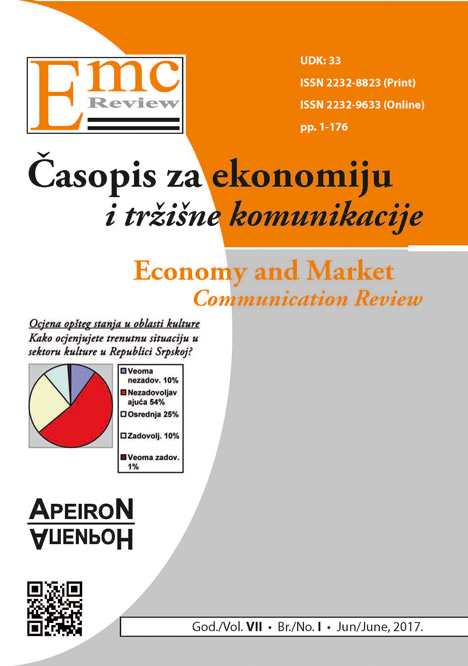CROATIAN EXPERIENCE IN OPERATIVE IMPLEMENTATION OF AIR TRANSPORT SAFETY REGULATIONS / HRVATSKA ISKUSTVA U OPERATIVNOJ PROVEDBI ZRAKOPLOVNE ZAKONODAVNO-SIGURNOSNE REGULATIVE
DOI:
https://doi.org/10.7251/EMC1701134TAbstract
Circumstances and conditions in establishing the Croatian Civil Aviation Agency coincide with the application beginning of the modifications of amendments (2007) and later final version of the Aviation Law of 2009, regulating its activity, business and managing bodies. Direct motive for its establishing have been negative regulatory assessments for the Croatian air transport authorities and the consequence was the impossibility to implement the already signed code share agreement between Croatia Airlines and American air carrier United Airlines. At the same time, big global economic crisis started, with its significant negative effects on air transport industry. This has left negative consequences in all the countries of the region, and especially in Croatia and its appertaining air transport market. Liberalization of the Croatian air transport market and that of the south east European region has created a highly competitive area, when the most significant European low cost and traditional air companies reached the Croatian market. Competence and scope of work of the Croatian Civil Aviation Agency, its mission, vision and strategy have been burdened with all these circumstances from the very beginning. Basic scope of this paper is to point to the reciprocal functioning of the Agency and appertaining consequences on the air transport system. Therefore, quantification of results and correlative analytical metrics of the appertaining safety – quality and regulatory effects with natural and economic results have been done, in order to find out their potential connection. The achieved results should be used as an additional stimulation to better future cooperation of regulatory bodies in the region. This process has already shown very good results.Downloads
Published
2017-06-27
Issue
Section
Чланци
